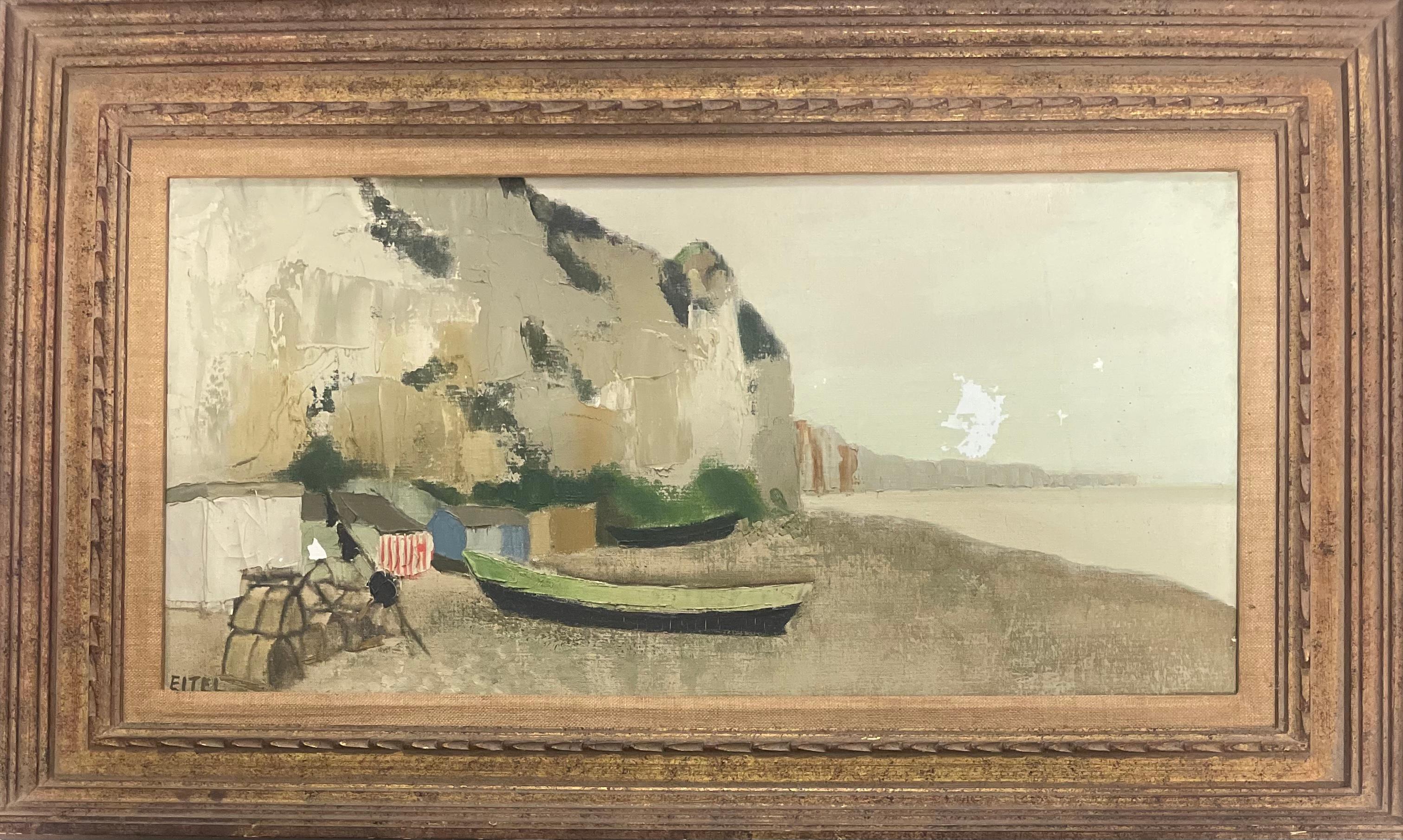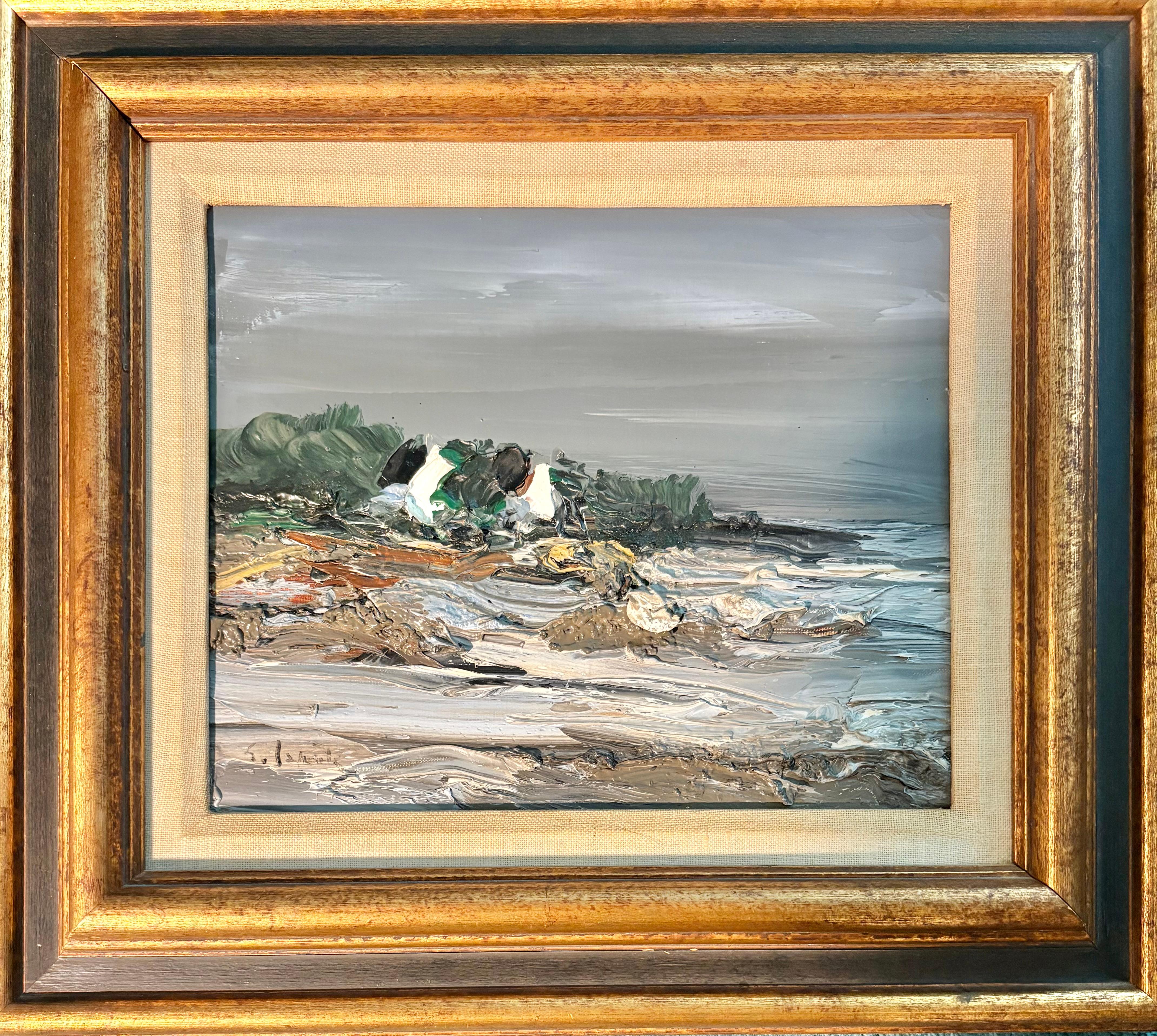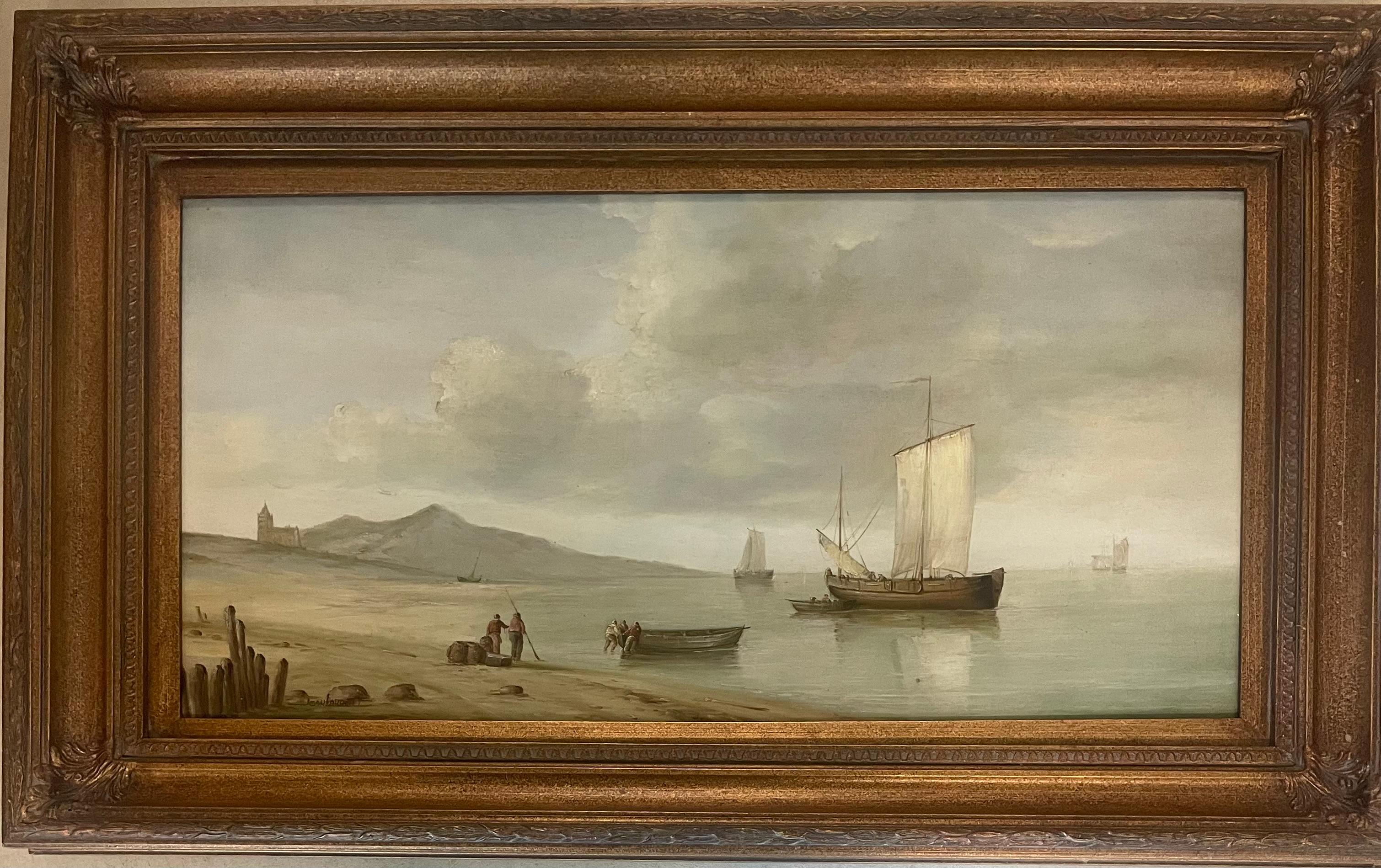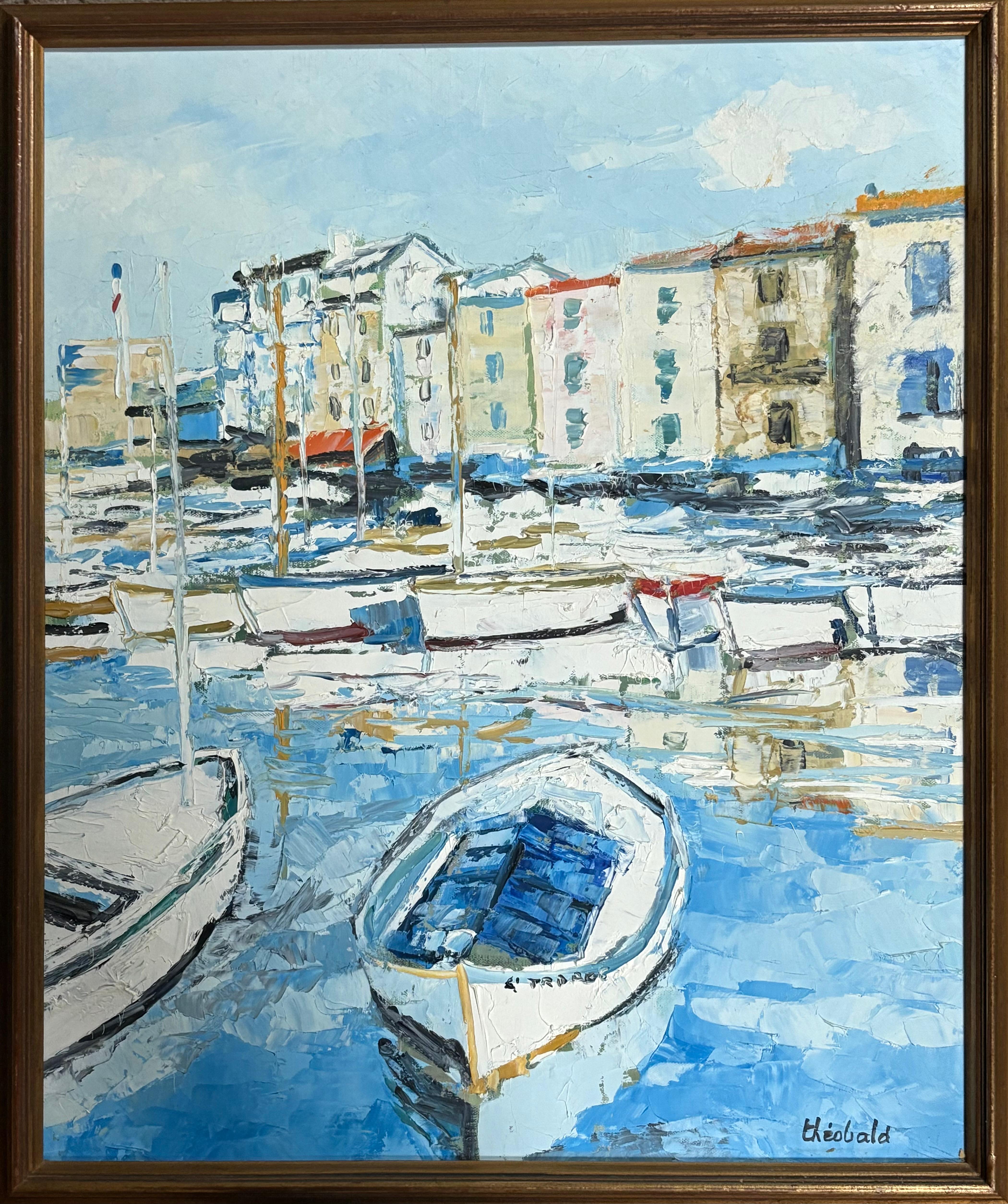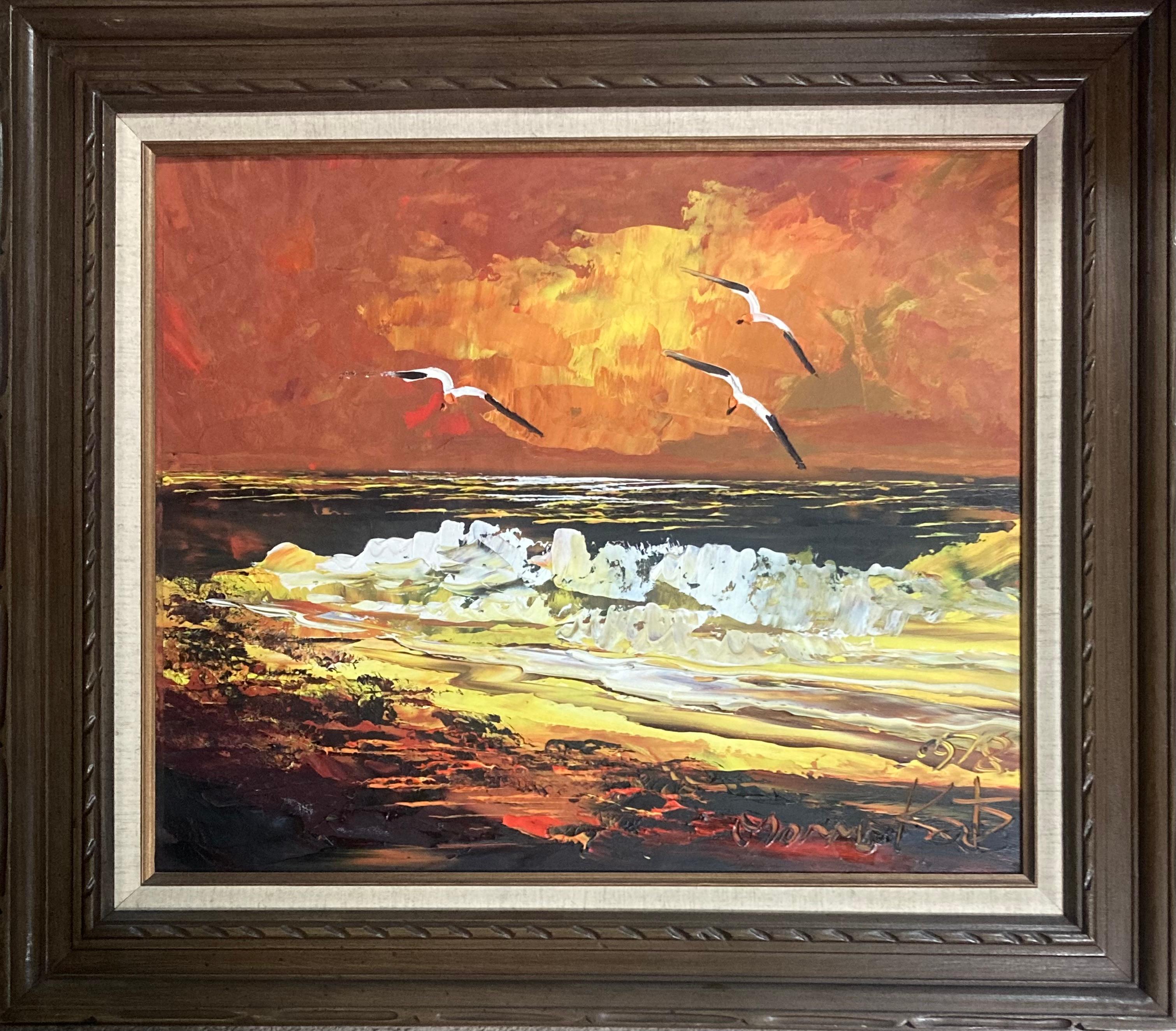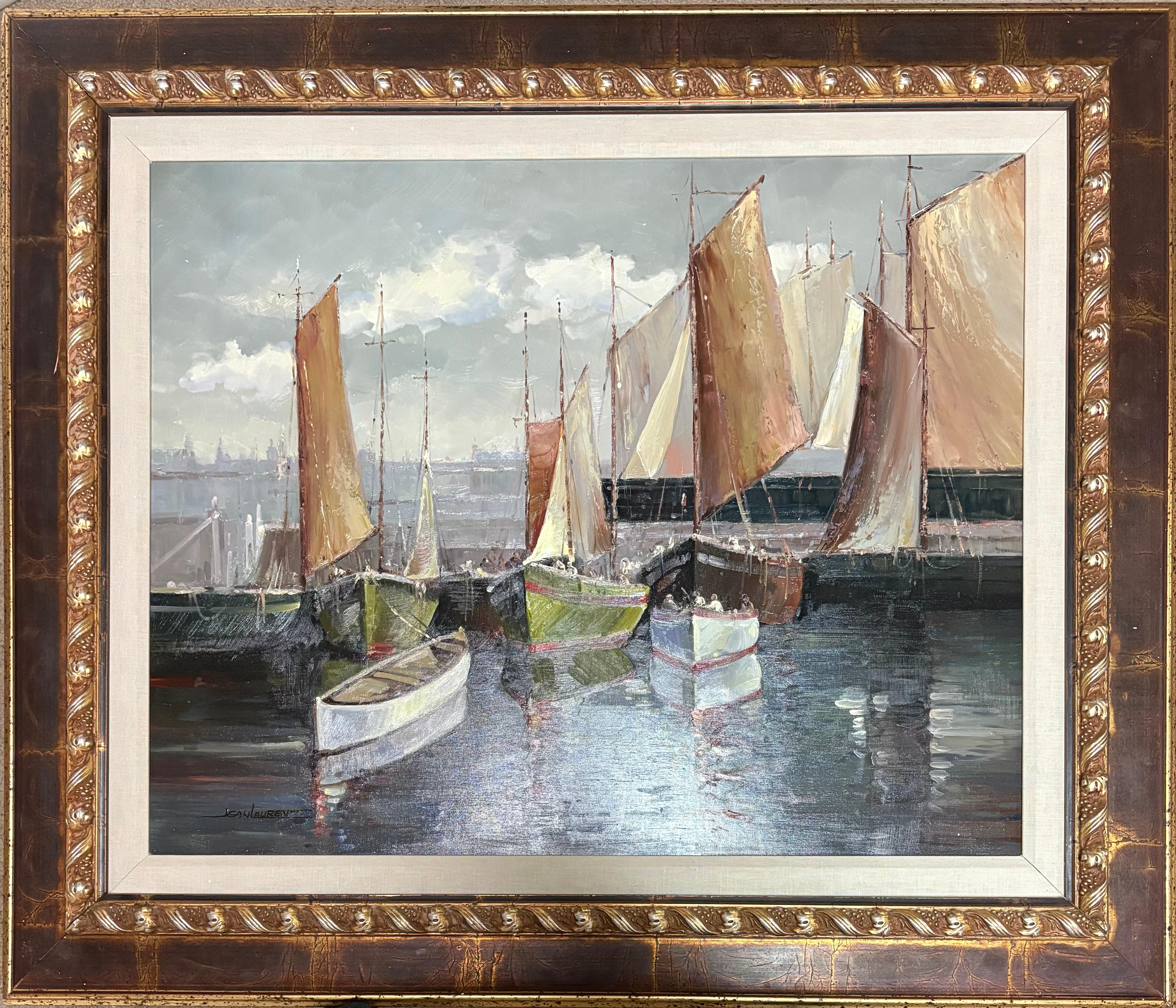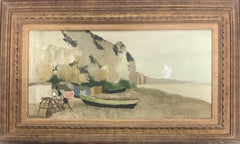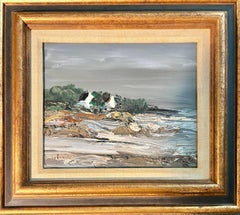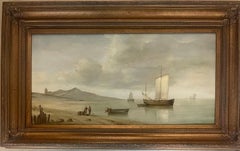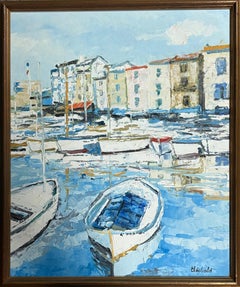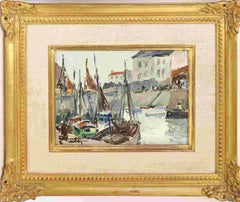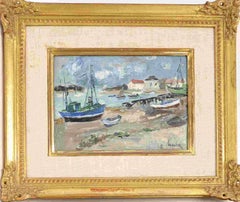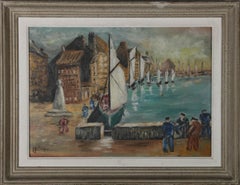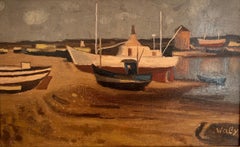Want more images or videos?
Request additional images or videos from the seller
1 of 12
Jean-Claude Quilici“Water scene”
$4,000
£3,027.38
€3,476.04
CA$5,698.33
A$6,179.98
CHF 3,245.96
MX$75,066.70
NOK 40,618.03
SEK 38,244.15
DKK 25,951.02
About the Item
This is an Jean-Claude Quilici original oil painting on canvas. The condition is good. Measures 32x28 titled in the back
- Creator:
- Dimensions:Height: 32 in (81.28 cm)Width: 28 in (71.12 cm)Depth: 1 in (2.54 cm)
- More Editions & Sizes:Original Price: $4,000
- Medium:
- Period:
- Condition:
- Gallery Location:Warren, NJ
- Reference Number:1stDibs: LU2336214441332
About the Seller
5.0
Gold Seller
Premium sellers maintaining a 4.3+ rating and 24-hour response times
Established in 2023
1stDibs seller since 2023
67 sales on 1stDibs
Typical response time: <1 hour
- ShippingRetrieving quote...Shipping from: Warren, NJ
- Return Policy
Authenticity Guarantee
In the unlikely event there’s an issue with an item’s authenticity, contact us within 1 year for a full refund. DetailsMoney-Back Guarantee
If your item is not as described, is damaged in transit, or does not arrive, contact us within 7 days for a full refund. Details24-Hour Cancellation
You have a 24-hour grace period in which to reconsider your purchase, with no questions asked.Vetted Professional Sellers
Our world-class sellers must adhere to strict standards for service and quality, maintaining the integrity of our listings.Price-Match Guarantee
If you find that a seller listed the same item for a lower price elsewhere, we’ll match it.Trusted Global Delivery
Our best-in-class carrier network provides specialized shipping options worldwide, including custom delivery.More From This Seller
View All“Water scene”
Located in Warren, NJ
This is an Jacques Eitel Original Painting Large Oil On Canvas French Signed Art. Painting has some paint missing please check photos. Measures 30x18
Category
20th Century Paintings
Materials
Oil
“Seascape”
Located in Warren, NJ
Georges Laporte original oil painting on canvas . In good condition measures 16x14.
Category
20th Century Paintings
Materials
Oil
“Seascape”
By Jean Laurent
Located in Warren, NJ
This is an Jean Laurent (French, 1898-1988) original seascape painting large. Signed measures 45x28
Category
20th Century Paintings
Materials
Oil
$3,000
“Boats”
Located in Warren, NJ
Renee Theobald original oil painting on canvas measuring 26x21. In good condition
Category
21st Century and Contemporary Paintings
Materials
Oil
$4,000
“Ocean scene”
By Morris Katz
Located in Warren, NJ
Morris katz oil painting 1978. In good condition measures 32x28
Category
20th Century Paintings
Materials
Oil
“Sailboats”
By Jean Laurent
Located in Warren, NJ
Oil painting on canvas
In good condition
Measures 40x34
Signed
Category
20th Century Paintings
Materials
Oil
$3,000
You May Also Like
Harbour Scene II
By Fernand Herbo
Located in Naples, Florida
Harbour Scene II
Category
20th Century Landscape Paintings
Materials
Oil
Harbour Scene I
By Fernand Herbo
Located in Naples, Florida
Harbour Scene I
Category
20th Century Landscape Paintings
Materials
Oil
J. B. - Mid 20th Century Oil, The French Harbour
Located in Corsham, GB
A delightful scene depicting sailboats making their way into a harbour at a French portside town. Painted in an impressionist style using gestural brushwork to capture the scene. Sig...
Category
Mid-20th Century Landscape Paintings
Materials
Oil
$312 Sale Price
20% Off
Seen from a small port
Located in Genève, GE
Work on canvas
Gold and black wooden frame
41 x 54 x 4 cm
This remarkable painting, a work signed by the artist Waly, depicts a seaside scene with a touch of peaceful melancholy. ...
Category
1950s Landscape Paintings
Materials
Oil
Modern French Painting Signed Marine Landscape
By Moya Dyring
Located in Roma, IT
Beautiful and evocative oil painting by the great French school modern artist Moya Dyring specializing in marinas.
It depicts a harbor with boats probably from the French Riviera painted with great intensity but giving, at the same time, a sweet sense of serenity.
Moya Claire Dyring was born in Coburg, Victoria in 1909.
She produced drawings, oil paintings and pastels.
She was one of the first women artists to embrace Modernism and exhibit cubist paintings in Melbourne.
For several years she was a member of the modern art community known as the Heide Circle, named after the home of art collectors John and Sunday Reed, and now the Heide Museum of Modern Art.
Every item of our Gallery, upon request, is accompanied by a certificate of authenticity issued by Sabrina Egidi official Expert in Italian furniture for the Chamber of Commerce of Rome and for the Rome Civil Courts.
Dyring then travelled to the USA and France, where she lived most her life. Her work is held in the Heide Museum as well as the National Gallery of Australia.
One of her earliest works in cubist in style, Melanctha, 1934, was acquired by Sunday Reed.
In 1934 Dyring also painted Portrait of Sunday Reed which went into the Reed's collection, along with a cubist style Portrait of a Woman from the same year.
While her early works were figurative or cubist, in France she turned to landscape as she travelled to various towns throughout France.
In her later years, unable to travel freely, she painted children against the backdrop of Paris.
As time passed, she was largely glossed over and not included in major exhibitions of artists, especially women artists, of the 30s, 40, and 50s.
In 2002, at the University of Melbourne, Gaynor Patricia Cuthbert delved into her life and work for a doctoral thesis, helping to bring back attention to her work.
Collection
The Heide Museum of Modern Art holds many paintings and drawings, some acquired through the John and Sydney Reed collection.
The National Gallery of Australia, Canberra includes one drawing.
The Art Gallery of New South Wales holds multiple works.
Third child of Carl Peter Wilhelm Dyring, medical practitioner, and his second wife Dagmar Alexandra Esther, née Cohn, both Victorian born. Moya was educated (1917-27) at Firbank Church of England Girls' Grammar School, Brighton.
After visiting Paris in 1928, she studied (1929-32) at the National Gallery schools, Melbourne, and shared fellow student Sam Atyeo's interest in artistic innovation.
Classical modernism engaged her attention in the early 1930s.
She painted at the George Bell school and studied under Rah Fizelle in Sydney; Mary Alice Evatt and Cynthia Reed were her colleagues.
For several months in 1937 she took charge of Heide, the home and garden of John and Sunday Reed, at Bulleen, Melbourne.
The Reeds were pivotal both to her sympathy for modernism and her belief in congenial fellowship.
She enjoyed something of the intense relationship with Sunday Reed that the latter would subsequently extend to Joy Hester.
In June Dyring held an exhibition, opened by H. V. Evatt, at the Riddell Gallery, Melbourne.
Less enthusiastic than the Reeds and the Evatts about her art, Basil Burdett wrote of her 'somewhat incoherent interpretation of modern ideas', although he did acknowledge that her work had 'audacity of colour and a certain monumental feeling for form . . . qualities rare enough in Australian painting'.
In August Dyring embarked for Panama whence she travelled by bus to New York, breaking her journey to view major galleries.
She had intended to paint in the United States of America, but disliked the work of contemporary American artists and sailed for France.
In 1938 she was based in Paris, taking advantage of Atyeo's contacts within the avant-garde.
She studied at the Académie Colarossi, the Académie de la Grande Chaumière and with Andre Lhote, although by October she denounced him as a 'racketeer'.
In 1939 Dyring and Atyeo settled on a farm at Vence, France; inspired by memories of Heide, they grew fruit and flowers.
Sam accepted a commission to decorate a house in Dominica, West Indies, leaving Moya at Vence.
Evacuated to Australia via South Africa, where she painted and searched for tribal art, she then journeyed to Dominica and married Atyeo.
They were not happy, neither painted and Dyring was ill. Evatt offered Atyeo work and Dyring accompanied him to the U.S.A.
She viewed art, painted occasionally and claimed to have exhibited in Washington in 1943.
After World War II Evatt found Sam various postings, while Moya returned to Paris to pursue a full-time career in art.
They were to be divorced in 1950.
From about 1946 Dyring's art was more personal than innovative.
She gained a considerable reputation among French regionalist and nationalist artists for her sympathetic appreciation of provincial scenes and life.
Bernard Smith placed her in the French tradition of intimiste painters.
In 1948 she leased and renovated an apartment on the Ile St Louis, which, as Chez Moya, became a centre for Australians who enjoyed her hospitality, cooking and practical assistance.
She revisited Australia and exhibited in various cities in 1950, 1953, 1956, 1960 and 1963; the press carried her reports of Parisian cultural life.
Dyring held a solo exhibition in London in December 1949 and was in close contact with expatriate Australians, among them Loudon Sainthill...
Category
1950s Modern Landscape Paintings
Materials
Wood, Oil
$1,436 Sale Price
20% Off
Harbour Scene
By Ezelino Briante
Located in London, GB
Oil on panel, inscribed and dated '1946' bottom right
Image size: 19 1/2 x 15 1/2 inches (49.5 x 39.5 cm)
Period frame
This painting stands out for its use of full-bodied brushstrokes and thick impasto application of paint. It depicts an Italian harbour in the 1940s, probably on one of the islands in the bay of Naples, such as Procida.
The Artist
Ezelino Briante was born and trained in Naples and he traveled around Italy and abroad (France, Switzerland, Sweden, Brazil, United States of America) looking for naturalistic subjects that he preferred. This celebrated painter studied at the Accademia di Bella Arti di Napoli and his scenes of Italy won him great support and fame in Italy and internationally.
His paintings of Italian piers, in particular those of Campania; well known are also his marine landscapes of Sorrento, Capri, Maiori, Amalfi Coast and Sorrento Coast...
Category
1940s Abstract Landscape Paintings
Materials
Oil, Board
More Ways To Browse
Water Scenes Oil Paintings
Romantic Oil Painting
Framed Flower Still Life
Antique Oil Paintings On Board
Salt Lake City
Science Fiction
Paintings Of New York City At Night
Wychwood Art Gallery
Affordable Art London
Victorian Oil On Canvas Landscapes
Paris Street Scene Oil Painting
Very Large Antique Oil Painting Paintings
17th Century Oil Paintings
Queen Elizabeth
Blue Realist Paintings
Countryside Paintings
Original Signed Framed
Still Life Oil Painting Gold Frame
